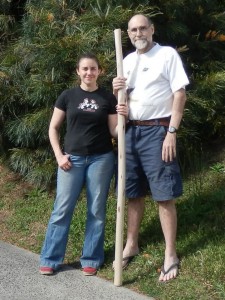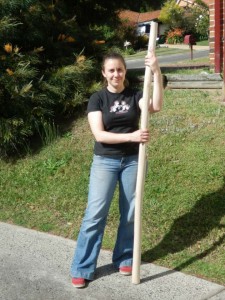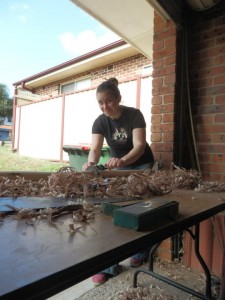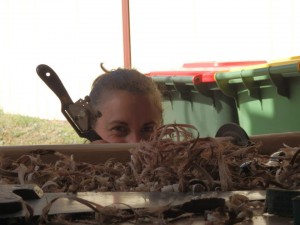There is a lot of commentating, hypothesising and general navel-gazing around the topic of “online culture” and how the Internet is changing society. Some believe we are ascending into a euphoric utopia where we will all be free and ride unicorns over double rainbows! Some bemoan our descent into ego driven fickleness that is undermining the very foundations of a civil society!
The reality is far simpler.
It is also, though it seems odd for many to hear, rooted in the actual technology of the Internet and history of geek culture.
I was originally going to do four blog posts looking at:
- Unicorns and doom: online culture and the impact on mainstream society
- Live free or dial: public vs private, some new challenges for our society online
- The geek will inherit the earth: the history and lessons of online culture
- Who is responsible: some thoughts on the relationship between citizens, corporates and governments
I will continue this series mid 2013 as my contribution to an important discussion we are starting to have as a society, as well as useful in providing some context for those unaware of geek culture (and their own inevitable geeky metamorphasis).
Unicorns and doom: online culture and the impact on mainstream society
It is certainly true that we are seeing a shift in society that is profound, but it is a shift that really boils down to two key aspects:
- a change in mainstream society expectations, &
- a transfer in power (and increased capacity for greatness) to the individual and thus the community.
Great Expectations
When you use the Internet, it changes you. I don’t mean sending emails and the occasional Google search. I mean when you spend many hours every week or day going online, engaging in discussions, cross-checking official statements with on the ground bloggers, actively seeking out people you like (or dislike) online to see what they are up to, and clicking through interesting links until you inevitably find yourself rickrolled.
Using the Internet changes your expectations of the world around you, and importantly your expectations of how you can interact with the world.
There are four expectations that we develop, consciously or not, by engaging online:
1) Route around damage
At a technical level the Internet was designed so that there was always a way around a problem in the communications. Any damage or blockage becomes just something to work around. Internet users naturally adopt this idea of assumed access and expect to be able to find and do whatever they want online.
This becomes an extraordinary and profound expectation when “damage” is interpreted at a social level, and individuals assume they can “route around” any form of artificial interference such as censorship or manipulation. The expectation develops in individuals that they can work around obstacles in their life, and they are less likely to put up with ideas thrust upon them or agendas they do not subscribe to.
2) Healthy skepticism
Anyone can publish their thoughts online and there are many cases where the official media reporting of an issue does not gel with the online accounts of people on the ground. Projects like Wikipedia demonstrate clearly that for many issues there is more than one “truth”.
Wikipedia, to its credit, manages to present the most generally accepted version of issues whilst also archiving edits and discussion pages to present to the inquisitive reader some of the conflicting ideas around the topic.
Contrast both of these situations to the past where the local newspaper was the only news and Encyclopedia Brittanica or an equivalent was the authoritative source for students and casual research. The variety and ease of access to different opinions and knowledge is an easy trap in the first instance, but rapidly teaches us the importance of cross referencing, of looking for why someone might think or say something, of being skeptical of official information.
3) Transparency and accountability
When we want to know about something, we automatically look it up online. We expect to be able to get information on any subject we choose and when information is not forthcoming we ask why. Anyone is accessible online and we can follow (and in some cases get responses) from our leaders, music stars, favourite authors, peers, pretty much anybody.
This experience fuels an expectation of access and engagement which is a challenge for many, particularly in older established institutions. It is the accountability with which we can hold people, organisations and institutions to account that is making it easier for us to make informed choices.
Of course the flip side of this is that individual privacy has become far more public and people are sharing more and more of their lives online and then dealing with the consequences. Such as sharing that you are going away for the weekend along with your address through geocoded tweets and then finding your house broken into.
We are currently going through a transition period where the old and the new are caught in a frenetic push and pull of negotiating expectations, and we have not yet really defined our expectations of online privacy. See part two of this blog where I go into the ramifications of public vs private online.
4) Do-ocracy
When we meet people in the physical world, we engage in a complex dance of communication. There are protocols (in every culture), we use a number of mechanisms such as voice and body language to establish rapport, there is a negotiation of expectations and limitations and often an interesting conversation will result.
By comparison, when we meet someone online, we can immediately compare what they are saying to us to what they are saying to others, or what they’ve said before and importantly, what they’ve done. We can google their name/nick and get an indication of what they are like and their contributions to the world. We have an immediate capacity to establish for ourselves at least a small amount of context around this person, far more so than we could hope to establish in person over a significant period of time.
Even without a person’s real name you can establish a trusted, constructive dialogue and collaborate online. Establishing networks of trust is obviously not new, but the ease with which we can do so online with people from all across the world, even with pseudonyms or anonymously, creates an expectation that we can achieve great things in great numbers, very rapidly, without necessarily having to know exactly who they are.
It also creates an expectation that fits very well with Australian culture. That is, we start to treat people according to their actions, their efforts, their contributions, as opposed to their status, relatives or finances. Even famous people become judged by their actions as opposed to their past.
All of these changes in societal expectations has a profound impact on how people engage with the world around them, with governments and organisations, and interestingly with power constructs.
People Power
Like every other significant shift in society, we will see most people adopt the new tools as a matter of convenience, but we will also see some people embrace the opportunity for their personal beliefs or freedoms.
The opportunities for personal and community empowerment are enormous online.
The Internet has democratised both access to and “publishing” of knowledge. The control of knowledge has always been a power mechanism, and we are now seeing a significant struggle as traditional knowledge and power brokers find themselves continually flanked by individuals and communities.
Technology gives us an immediate, global reach both for information dissemination, but also significantly for distributed grassroots coordination. And we can engage with other people under our own names, psuedonyms or indeed anonymously, all of which are important in different ways. Also, as most people are online in some capacity (and certainly every power broker), anyone is able to be engaged with or affected online.
So armed with information from many sources, a virtual megaphone, the ability to connect with like minded people anywhere and coordinate, and the ability to do so from the relative safety of a psuedonym or anonymity, we really can achieve anything. Sometimes this power is used constructive, sometimes just for the lulz, but the Internet has changed all of us fundamentally.
In Conclusion
There will always be people being fickle, thoughtful, noble, underhanded, overreaching, argumentative, complacent and all the rest. The Internet has not changed any of this but it has acted as an amplifier. People will always be people (and we don’t have a plan ;)).
To assume social media (for example) is changing society because people are putting random tidbits about their life and thoughts in the public domain is a shift is not only a mistake, but a gross underestimation of what is actually transpiring. People have always used the tools they have to hand to express themselves, it just so happens the current tool of choice is quite public.
However, the Internet has had a profound impact on mainstream society. It has changed our expectations, how we engage with the world around us, and has created new opportunities for power for all people (and organisations). It has become an extension of our everyday life and mind, a meritocratic demonstrator of community empowerment and hyperconnectivity, and yet we are only just getting started.
My next post will look at some of the new challenges we are facing online, such as our definition of freedom, rights, and the interesting dynamic between private and “public” spaces online.









